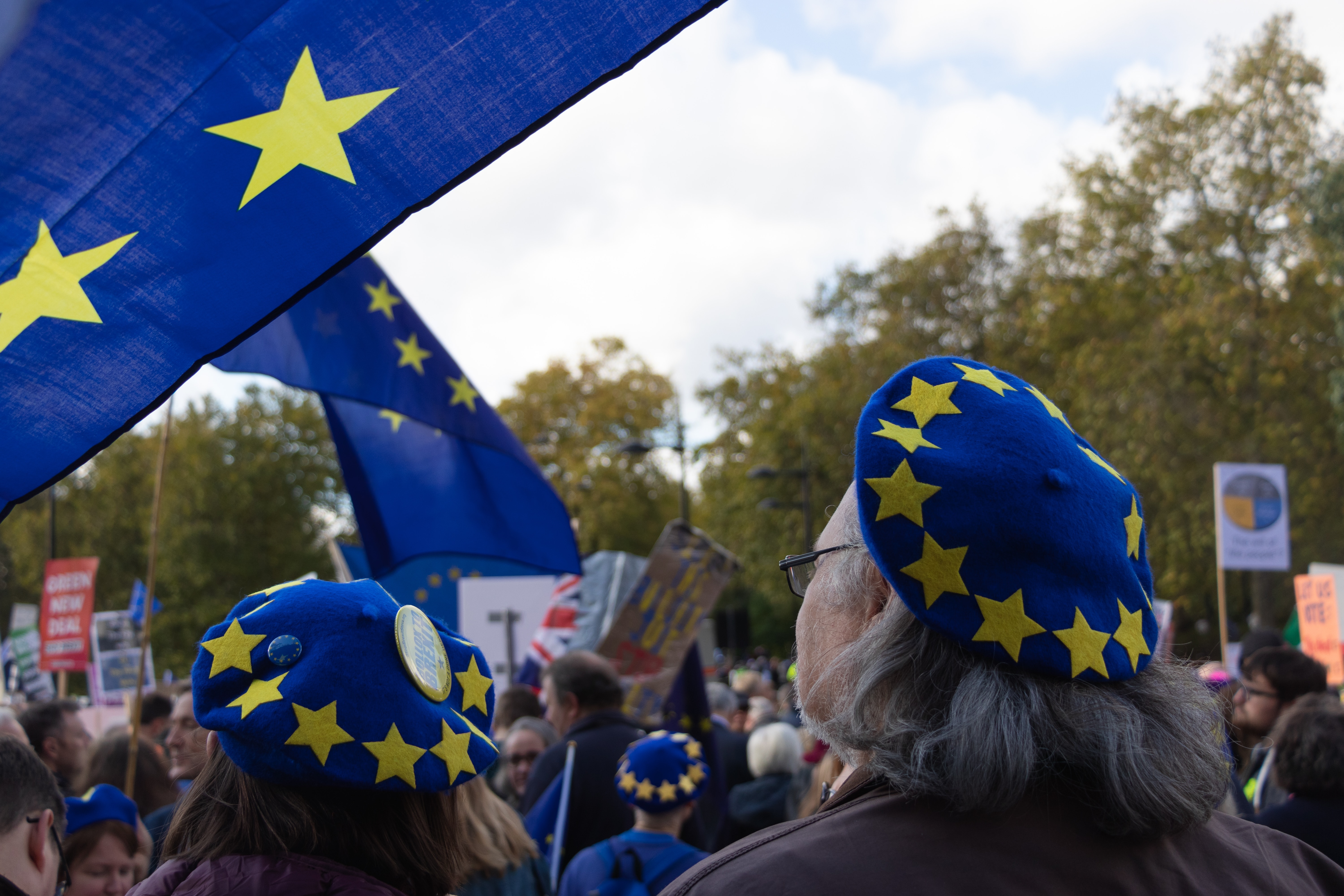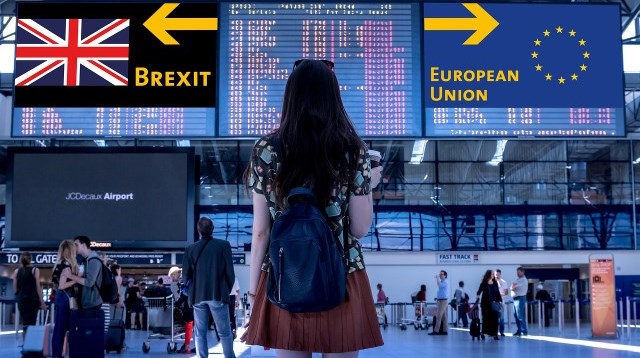By Lucy Smith, sociology undergraduate at the LSE.
The fact that we have left the EU is no surprise. Nor is David Cameron’s resignation. Brexit is the price that we pay for nurturing a political class who care more about their individual careers than the people they have been elected to represent. The referendum was thus not a division between the young and the old, nor the right and the left- rather, Brexit has unearthed the gulf between the general public and Westminster’s untouchable elite. From the onset, I have always maintained that Brexit was a strong possibility. Unlike many of my peers who are fortunate enough to live in a vibrant city such as London, I have seen the division between the British people first hand. To some LSE undergraduates, Brexit was a harmless impossibility; one of my friends even claimed that if she were to vote, she would vote “out for a laugh” because everyone she knew was voting in. And she can’t be blamed for thinking like this; everybody knew that London would come through in favour of Remain, and deep down I knew that despite the campaign’s best efforts, the majority of constituencies would vote Leave. The uncertainty that we now face was beyond my prior comprehension. In my opinion, things can only get worse; as a nation, we are now more divided than ever before.
Despite whoever or whatever precedes David Cameron, his resignation is a silver lining to the storm clouds that currently loom above us. After all, Cameron is a man who put the interests of the Conservative party before those of the country he was elected to serve. Now that companies will look to make Britons redundant following Brexit, it seems only fair that our prime minister was the first to lose his job. The sad truth, however, is that he will walk away from his job with more than most Britons; a damaged ego is a lesser evil than what is to come for the country’s most vulnerable. The young, the elderly, low income families and those reliant upon the welfare state will now be left to pay the price for Cameron’s referendum. There is no doubt that the effects of a knee-jerk reaction such as Brexit will effect us all at some point, but it is our society’s most vulnerable who will feel this impact at it’s greatest intensity. David Cameron is a prime minister who has betrayed Britain; he asked the electorate to make decision regarding a very tedious and difficult question which divided even the most senior members of his party. Said question posed to the electorate was, politically speaking, a wolf in sheep’s clothing; seemingly straightforward, when in reality our relationship with the European Union was- and still is- an extremely complex issue. It is very easy for political scholars to champion the referendum as a treasure of UK democracy- but as we are well aware, theory very rarely correlates with practice. Brexit’s biggest failure was the electorate’s lack of non-politicised knowledge regarding the European Union- and thus, they became susceptible to the preachings of career politicians such as Boris Johnson and nationalistic ideologues such as Nigel Farage.
And what became of the undecided? It’s true that many opted for the atypical response; some voters failed to turn up to the polls and others spoilt their ballots. Yet the majority of undecided voters I knew, mainly my family and friends, opted to base their decision upon overly simplistic Facebook quizzes. It is very easy for the Westminster elite, and even LSE undergraduates, to criticize “Joe Bloggs” for making this kind of decision- but I believe we have no right to do so. The majority of voters who based their decisions upon the press, social media and the preachings of politicians have not betrayed our democracy by voting for what they felt was ‘right’, whether it be for themselves or the wider society. Ultimately, it is not the responsibility of the electorate to choose what is best for our society; rather, this is the very purpose of UK Parliament. For Brexit and its fallout, David Cameron should be held accountable; he was an out of touch prime minister who underestimated the susceptibility of the general public. Now, in a final display of disregard for the British people, Cameron has opted to leave the helm of the ship that he led into dangerous waters. In short, he wants no part in the turmoil he has created; instead, he walks away with a damaged ego and a broken party. Perhaps I would pity David Cameron if his downfall were irrespective of the monumental damage he has caused.
The general consensus amongst my family and friends, post referendum, is that the economic fallout of Brexit will be a short-lived reality. Lots of people feel compelled to reassure me via Facebook that the youth will emerge from the rubble unscathed, and that soon things will return to the status quo or perhaps even better. Whether the UK will prosper or perish following Brexit is not my call to make. Despite popular rhetoric, in the majority of constituencies -excluding some of our poorest- there are also no “winners and losers” of the referendum; merits and limitations of daily life post-Brexit will be, in a manner of speaking, in the eye of the beholder. For instance, falling house prices will be to the advantage of some and will disadvantage others. In essence, these finer points of Brexit are of little importance to me. As a sociologist, I cannot help but worry about the wider societal implications of the referendum- and unfortunately, I can see what is beginning to rear its ugly head upon the horizon. Perhaps this is why sociologists found themselves sidelined from the mainstream debate in the weeks building up to the referendum. Questions of sovereignty, immigration and identity were asked without mention of sociological studies, analysis or commentary. Instead, it was business as usual; we were excluded from an important debate, and now we have been left to watch the chaos unfold. I am not alone in observing that Brexit has had a negative impact upon our society- not only because it’s a political debate which has split the nation, but most importantly because it has popularised nationalism and xenophobia.
Jeremy Corbyn and Owen Jones may want to portray Brexit as a class issue. From my perspective, the outcome of June 23rd exceeded the parameters of a “working class revolt”. This is not to dismiss the fact that Britain’s poorest neighbourhoods have suffered for our EU membership insofar that their job security, housing and identity has been challenged by economic immigrants, many of whom are from Europe. Yet I believe that Brexit has unearthed a dark truth about the English psyche; how can it be that those who are relatively “middle class”, such as those in my constituency, exhibit such a deep hatred of immigration? Brentwood and Boston are very different constituencies, but they are similar insofar that both voted overwhelmingly in favour of Brexit. The hard lesson learnt from Brentwood and other similar constituencies is thus that immigration has made itself a national problem regardless of those whom it affects. It is therefore not surprising that, in wake of Brexit, hate crimes have seemingly increased. Those of you in London may have noticed the recent surge in press coverage regarding racist attacks; venture beyond zone five and you will begin to feel suffocated by the racial tension in the air. At my local pub last Friday, union jack bunting hung above the heads of punters as they deemed Scotland undemocratic for not backing England’s choice to leave the EU. “This is what it’s all about” said one of my fellow constituents, whilst triumphantly holding a pint of beer, “Britain for the British- and if the Scots and other whinging Remainers don’t like it, they can join the rest of them and live somewhere else.” These sentiments, whilst not uncommon, are also deeply unsettling. Brexit, regardless of its outcome, is responsible for a surge in nationalistic ideals regarding boarders, citizenship and democracy itself. Such a phenomenon is both the product of politicised reporting and the popularisation of xenophobic ideology, the latter of which far right parties such as UKIP and Britain First are responsible.
What will become of the United Kingdom following our departure from the European Union remains unknown, but regardless of our impending prosperity or failure, I believe that Brexit has had a catalytic effect upon our society. As I previously stated, Britain’s most vulnerable will suffer the most; in the commencing weeks, these individuals will experience more than mere uncertainty- rather, they will be the causalities of Brexit. Redundancies and fluctuating prices are bound to put greater strain upon communities and even services, such as the NHS, already pushed to breaking point. The fallout of the EU referendum will see the economic, political and social reformation of the United Kingdom. Time will tell of what our nation will become, and it will also determine the fate of those who been instrumental in orchestrating the Brexit. In the meantime, there is very little that we can do; instead we must sit idly by as the rest of the world watch our departure from the EU with confusion and dismay.





